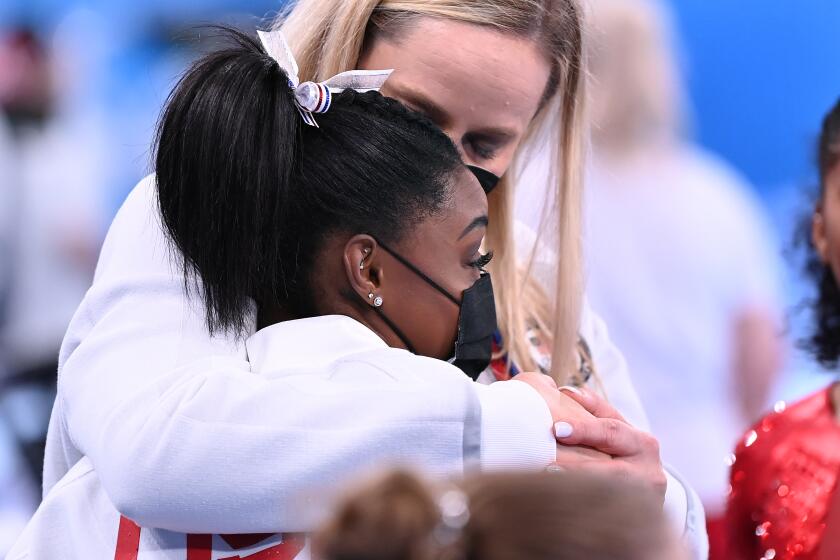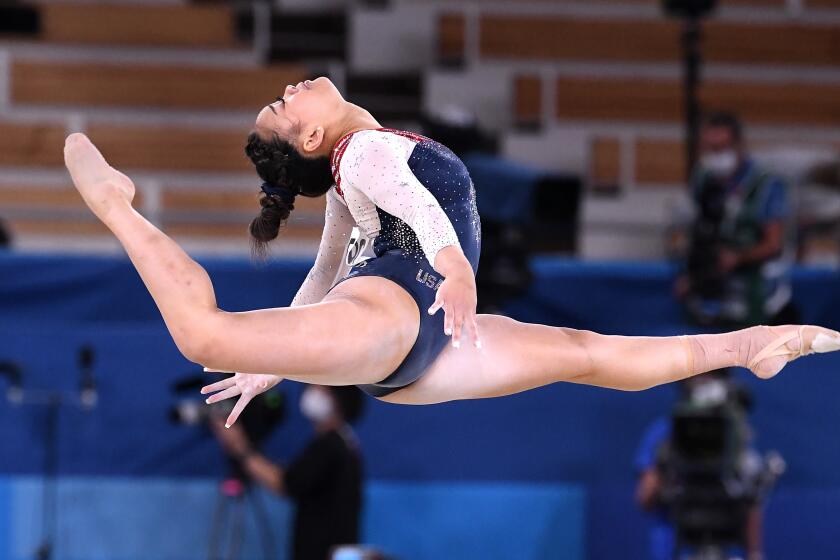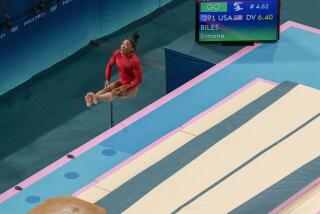Column: Simone Biles excels as a human being but fails as a gymnast
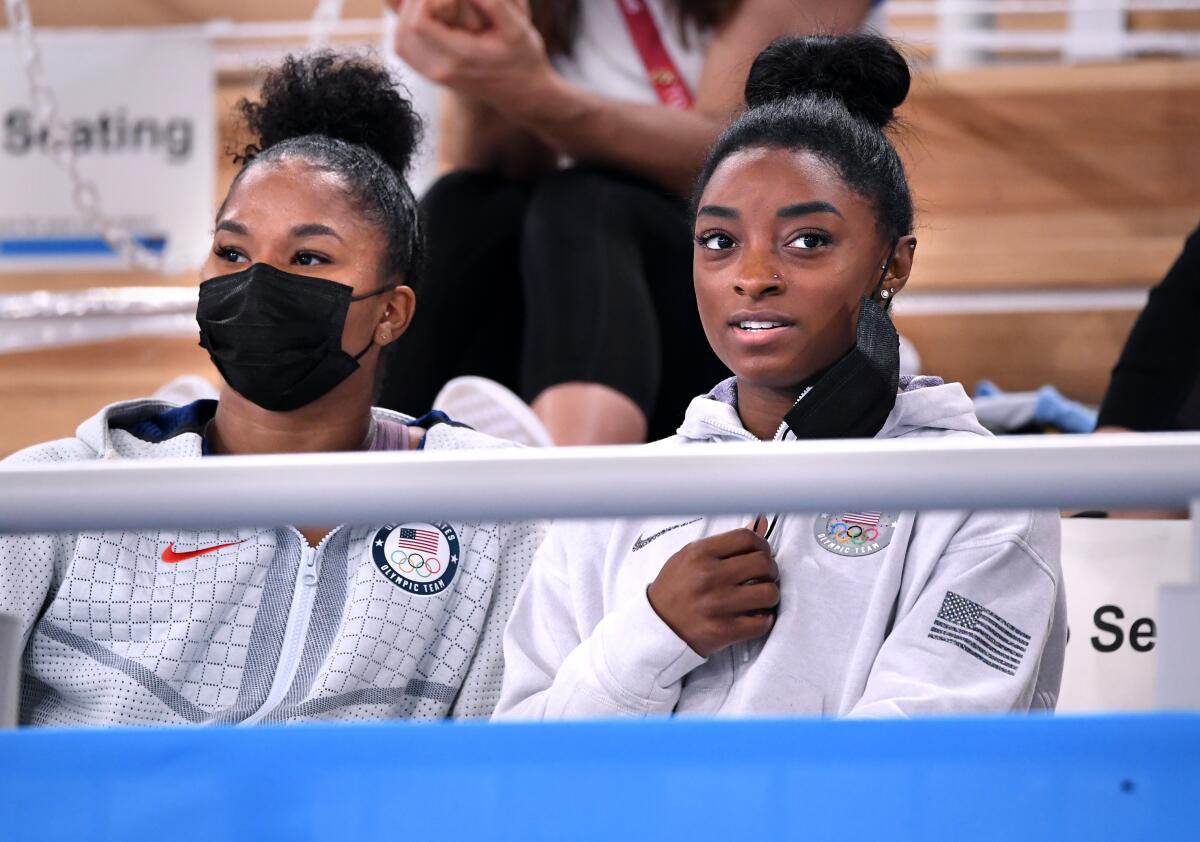
- Share via
TOKYO — Simone Biles was in a better place by Thursday.
On the morning of the gymnastics all-around final from which she had already withdrawn, Biles posted a message that was inspired by a personal breakthrough: “the outpouring love & support I’ve received has made me realize I’m more than my accomplishments and gymnastics which I never truly believed before.”
Her pleasant surprise at the warm public embrace she received was an indirect admission of a truth her fervent army of defenders refused to acknowledge.
Biles failed as a gymnast.
Her tweet implied that she didn’t think she would have received such kind words if she had been judged solely on her athletic performance; that she was afforded kindness because her people saw her as a human being, not just a gymnast.
It’s wonderful that so many people were so empathetic toward her in the aftermath of her dropping out of the team and subsequent all-around competition.
Critics who say U.S. gymnast Simone Biles choked or quit don’t understand the pressure she faces and need to shut up, columnist Bill Plaschke writes.
Really, it’s wonderful.
However, as this episode recedes into the past, it’s worth examining the subject of the stress, specifically its place in sports.
This won’t be the last time an athlete doesn’t compete out of concern for his or her mental well-being.
Tennis champion Naomi Osaka participated in these Olympics after a self-imposed mental break during which she skipped Wimbledon. Several major and minor league baseball players have retired in recent years citing psychological reasons, including Angels reliever Ty Buttrey in April.
As was the case when Biles folded, these stories elicited contradictory responses from well-meaning observers, who in expressing sympathy for the athletes suddenly downplayed the very reasons for which they were admired in the first place.
The impulse to want to defend Biles was entirely understandable. She was a spectacular performer and a worthy ambassador for her sport.
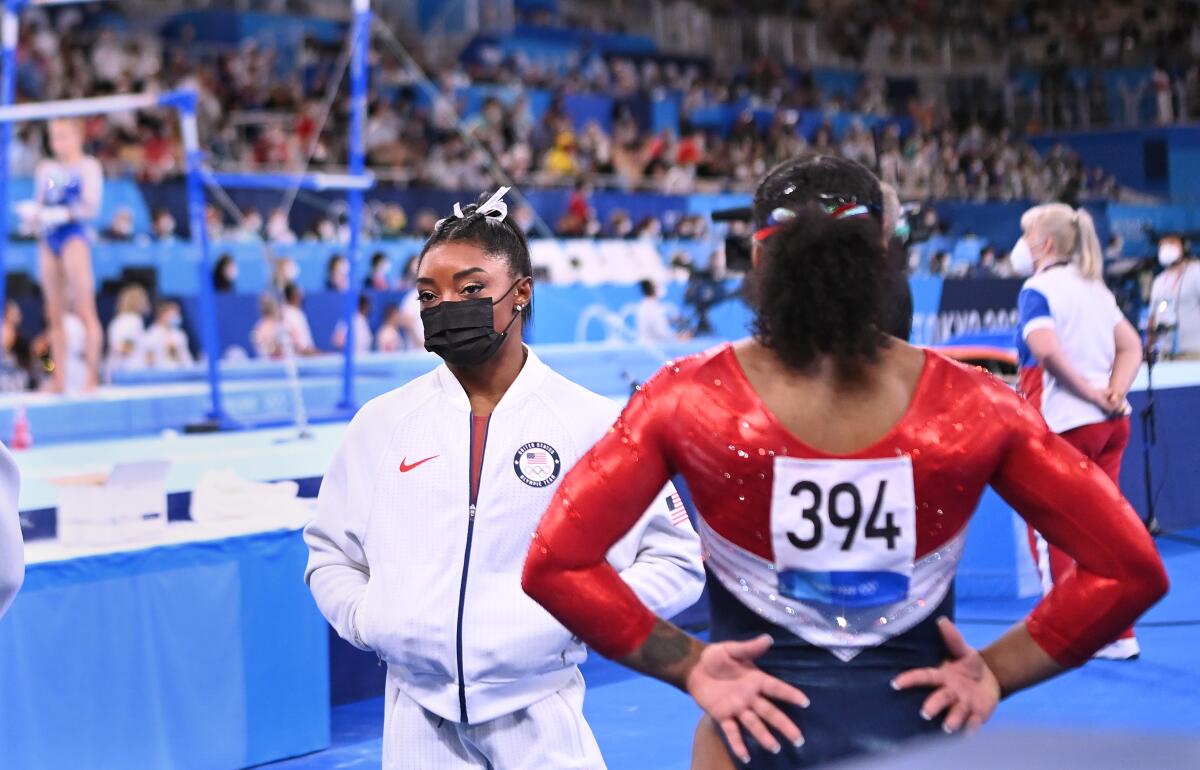
Whatever the reasons, if she felt she couldn’t compete, or even if she just didn’t want to, she shouldn’t have. That was her right as a human being. Considering she was sexually abused by Larry Nassar under the watch of USA Gymnastics, she certainly didn’t owe the governing body anything. Her only obligation was to her teammates. If they were OK with her refusing to attempt her vault, everyone else should be too.
However, it’s incredibly disingenuous to defend Biles the gymnast with the same arguments used to defend Biles the woman.
Pressure is a fundamental part of sports. The ability to perform under duress is what sometimes separate the great from the good and professionals from amateurs.
Performances in major events are appreciated more than those in minor ones, in part, because of the stress involved. Michael Jordan was Michael Jordan because of what he did in the NBA postseason, just as Biles was Biles because of what she did in the 2016 Rio Games. There was a reason Argentina’s victory at Copa America soccer tournament was celebrated outside of South America; the championship was Lionel Messi’s first in an international competition, without which his career was perceived to be incomplete.
U.S. gymnast Suni Lee won the all-around gold medal at the Tokyo Olympics, taking the lead after the third of four rotations.
Biles’ backers who decried the weight of her burdens sounded like the people who complain about violence in football. What do they want? For sports to be banned? Because there are no sports without pressure, just as there is no football without violence.
Arguments that her failure makes her more human miss the point. She is wealthy and famous because of her ability to not look human.
Equally ludicrous is the rationalization that what happened didn’t affect her legacy. Think of it this way: Would her legacy have been enhanced had she led the U.S. to another team gold and defended her individual all-around title? Of course it would have.
And to those who reacted to Biles’ mid-competition opt-out by saying, “So what?”: Well, she didn’t do her job.
News, results and features from The Times’ team of 12 reporters who covered the Tokyo Olympic Games in the summer of 2021.
To be clear, Biles can choose to not do that job. That’s her prerogative. It doesn’t make her any less of a person. But don’t pretend it doesn’t make her less of a gymnast.
The refusal to acknowledge this reality sends her the wrong message, that her worth is directly linked to her achievements. So accept her failure as a gymnast and embrace her athletic shortcomings, few as they may be. Let her know her value as a human being won’t be measured by her scores on the vault or floor.
More to Read
Go beyond the scoreboard
Get the latest on L.A.'s teams in the daily Sports Report newsletter.
You may occasionally receive promotional content from the Los Angeles Times.

